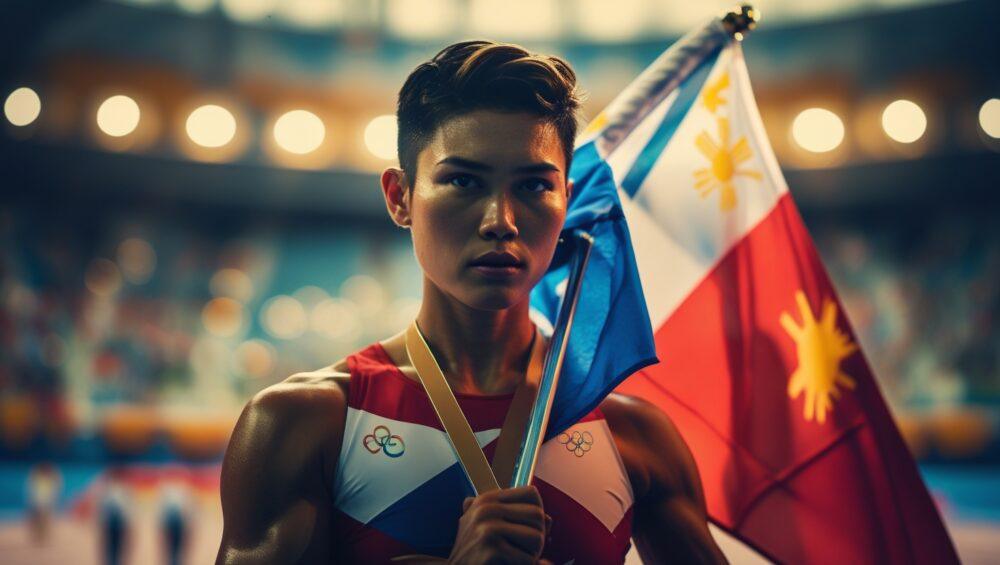So You Want to Learn More About the Philippines at the Olympics?
The Philippines has a rich and storied Olympic history—one built on passion, perseverance, and a deep love for country. As the first Southeast Asian nation to participate in the Olympic Games, the Philippines made its debut in Paris 1924, entering a global stage that has since become a platform for some of its most iconic sporting moments.
For nearly a century, Filipino athletes have represented the archipelago with grit and determination, often facing limited resources, yet still managing to shine against some of the world’s best. From early appearances in track and field to the more recent dominance in boxing and weightlifting, the Philippines’ Olympic legacy is defined not just by medals, but by the stories of struggle and triumph that have inspired generations.
Perhaps the most defining moment came in Tokyo 2020, when Hidilyn Diaz lifted the nation—literally and symbolically—by winning the country’s first-ever Olympic gold medal in weightlifting. That historic lift not only ended a 97-year gold medal drought, but also galvanized a new era of belief and investment in Philippine sports.
This article takes a deeper look into the evolution of the Philippines at the Olympics—covering key milestones, medalists, breakout stars, and the growing support structure fueling future success. Whether you’re curious about the country’s all-time medal count, interested in which sports the Philippines excels in, or looking ahead to Paris 2024 and beyond, you’ll find everything you need to know right here.
A Brief History of the Philippines at the Olympics
The Philippines first competed in the Summer Olympics in Paris 1924, marking a historic moment as the first Southeast Asian nation to take part in the Olympic Games. The country’s debut featured a small delegation led by sprinter David Nepomuceno, who became the Philippines’ first-ever Olympian. Although the team did not bring home medals that year, it laid the foundation for the country’s future participation on the world stage.
From the 1920s through the 1960s, the Philippines steadily grew its Olympic presence, particularly in athletics, swimming, and boxing—sports that aligned with the country’s early training resources and natural talent pools. In 1928, swimmer Teófilo Yldefonso made history by earning the Philippines’ first Olympic medal, a bronze in the 200m breaststroke at the Amsterdam Games. He repeated this feat in 1932, becoming one of the earliest Asian athletes to win multiple Olympic medals.
The 1932 Los Angeles Olympics proved to be a turning point, as the Philippines secured three bronze medals, showing the world that Southeast Asian nations could compete at the highest level. Over the following decades, Filipino athletes would continue to compete with courage and passion, especially in boxing, which would later become the country’s most successful Olympic sport.
However, the nation experienced a temporary setback in 1980, when it joined a partial boycott of the Moscow Games in protest of the Soviet invasion of Afghanistan. This marked the only Summer Olympics the Philippines has missed since its debut.
Despite challenges such as limited funding, lack of infrastructure, and political instability at times, Filipino athletes continued to show up—often against all odds. The country’s persistent Olympic participation is a testament to the resilience, talent, and unshakable spirit of its athletes, who carry not just personal dreams but the hopes of over 100 million Filipinos with every performance.
While the Philippines has yet to make an appearance in the Winter Olympics, efforts are being made to change that. In recent years, Filipino athletes with dual citizenship or overseas training opportunities have expressed interest in qualifying for winter events such as figure skating, skiing, and snowboarding, signaling a possible new chapter in the country’s Olympic story.
From humble beginnings to groundbreaking milestones, the Philippines’ Olympic journey continues to evolve—rooted in a deep sense of national pride and the unwavering pursuit of excellence on the global stage.Medal Tally: How Has the Philippines Performed?
Olympic Medal Tally: How Has the Philippines Performed?
As of 2024, the Philippines has won a total of 14 Olympic medals across four different sports—boxing, weightlifting, swimming, and athletics:
-
🥇 1 Gold
-
🥈 5 Silver
-
🥉 8 Bronze
Though the overall medal count may seem modest, every medal carries a story of tenacity, sacrifice, and national pride. In fact, many of these wins came despite challenges such as limited funding, lack of elite training facilities, and fewer international exposures compared to wealthier nations.
Notable Medal Wins Through the Years
🥇 Hidilyn Diaz – Weightlifting, Tokyo 2020 (Gold)
Hidilyn Diaz’s gold medal in the women’s 55kg weightlifting category was nothing short of historic. On July 26, 2021, she not only broke Olympic records but also ended the Philippines’ 97-year search for gold. Her win marked a turning point in the country’s sports development, sparking increased government and private sector support for athletes. Diaz, an air force sergeant and multiple-time Olympian, had previously won silver in Rio 2016, making her the first Filipino to win multiple Olympic medals.
🥈 Anthony Villanueva – Boxing, Tokyo 1964 (Silver)
The son of 1932 bronze medalist José Villanueva, Anthony carried on his family’s legacy by capturing silver in the featherweight division. His final bout ended in a controversial decision, but he remains an iconic figure in Philippine boxing. His performance helped cement the sport as the country’s best hope for Olympic success in the decades that followed.
🥈 Mansueto “Onyok” Velasco – Boxing, Atlanta 1996 (Silver)
Onyok Velasco’s journey to silver in the light flyweight division captivated the nation. His gritty, fast-paced fighting style made him a fan favorite, and like Villanueva, he also suffered a contentious decision in the final. After the Games, Velasco became a cultural icon, even transitioning into acting. However, his Olympic achievement continues to be one of the most celebrated moments in Philippine sports history.
🥈 Nesthy Petecio – Boxing, Tokyo 2020 (Silver)
Petecio made history by becoming the first Filipina boxer to win an Olympic medal, taking silver in the women’s featherweight category. Her win was also a milestone for LGBTQ+ representation, as she proudly embraced her identity throughout her Olympic campaign. Her story inspired young athletes, particularly women, to pursue combat sports.
🥈 Carlo Paalam – Boxing, Tokyo 2020 (Silver)
Paalam’s underdog story is one of perseverance. Raised in poverty and trained in makeshift gyms, he stunned the competition with his skill and composure, eventually earning a silver medal in the men’s flyweight division. His Olympic journey exemplifies the resilience of Filipino athletes, many of whom come from humble beginnings.
🥉 Eumir Marcial – Boxing, Tokyo 2020 (Bronze)
A professional boxer with strong amateur roots, Marcial delivered powerful performances en route to winning bronze in the men’s middleweight division. With aspirations for professional boxing glory and continued Olympic participation, Marcial remains one of the country’s top medal hopes for future Games.
🥉 Teófilo Yldefonso – Swimming, 1928 & 1932 (Bronze x2)
Known as the “Ilocano Shark,” Yldefonso was the first Filipino and Southeast Asian to win an Olympic medal. His bronze medal wins in Amsterdam 1928 and Los Angeles 1932 in the 200m breaststroke made him a pioneer for Asian athletes. Remarkably, he was self-taught and trained in rivers, making his achievements even more incredible. Yldefonso later served in World War II and died as a prisoner of war, leaving behind a legacy of courage and excellence.
🥉 Simeon Toribio – Athletics, 1932 (Bronze)
Toribio secured bronze in the men’s high jump during the Los Angeles 1932 Olympics, making him one of the earliest Filipino Olympic heroes. A multi-time national champion, he also later served in the Philippine Congress. His medal remains the country’s only one in athletics to date.
🥉 José Villanueva – Boxing, 1932 (Bronze)
As the father of Anthony Villanueva, José Villanueva’s bronze medal in Los Angeles 1932 started a multi-generational boxing tradition. He was also a mentor to other top Filipino boxers, influencing the sport’s development nationally.
These medals reflect more than just podium finishes—they are milestones in a broader journey of Filipino athletes rising against adversity and making their mark on the world stage. With each Olympic Games, the Philippines edges closer to becoming a more formidable sporting nation, and these medalists remain central to that evolving legacy.
Standout Filipino Olympians
1. Hidilyn Diaz
Diaz is now a national icon. Her victory in the women’s 55kg weightlifting event was not just a win—it was a breakthrough moment for Philippine sports.
2. Lydia de Vega
Often referred to as “Asia’s Fastest Woman” in the 1980s, de Vega represented the Philippines in track and field in two Olympics (1984, 1988).
3. Eric Buhain
One of the country’s top swimmers in the late 1980s and early 1990s, Buhain competed in two Olympic Games and later became a sports administrator.
Key Sports for the Philippines in the Olympics
The Philippines has found success in a few sports more than others:
-
🥊 Boxing – The country’s most successful Olympic sport, contributing the most medals.
-
🏋️ Weightlifting – With Hidilyn Diaz’s gold, this sport gained newfound popularity.
-
🏃 Athletics and Swimming – While not medal-rich, these sports have consistently sent talented athletes.
Road to Paris 2024 and Beyond
Looking ahead to the Paris 2024 Olympics, Filipino athletes are preparing harder than ever. With stronger government support, private sponsorship, and advanced training facilities, the Philippines is aiming to surpass its Tokyo 2020 performance.
Key athletes to watch:
-
Hidilyn Diaz (defending champion in weightlifting)
-
EJ Obiena (pole vaulter ranked among the world’s best)
-
Carlos Yulo (gymnast with multiple world championship medals)
How the Philippines is Investing in Olympic Success
-
Philippine Sports Commission (PSC) and Philippine Olympic Committee (POC) have ramped up funding.
-
Training camps abroad are now more common.
-
There is increased focus on sports science, nutrition, and mental conditioning.
Conclusion
The Philippines’ Olympic journey is a story of resilience, national pride, and rising excellence. With historic wins, promising athletes, and growing support for sports development, the country is no longer just a participant—it’s a contender.
Whether you’re a sports fan, an aspiring athlete, or a proud Filipino, the nation’s Olympic narrative is something worth watching, supporting, and celebrating.



